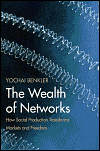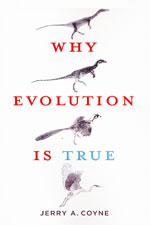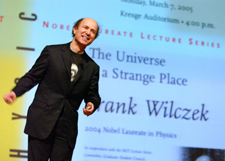Mathematicians and others are endeavoring to apply insights gleaned from the sciences of complexity to the seemingly intractable problem of understanding the world economy. I have a guess, however, that if this problem can be solved (and that is unlikely in the near future), then it will not be possible to use this knowledge to make money on financial markets. One can make money only if there is real risk based on actual uncertainty, and without uncertainty there is no risk.
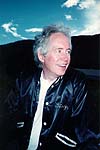
[EDITOR'S NOTE:] Heinz R. Pagels, died on July 23, 1988, in a mountain climbing accident on Pyramid Peak in Aspen, Colorado. A physicist, he was Executive Director of The New York Academy of Sciences, adjunct professor of physics at Rockefeller University, and president of the International League for Human Rights. He was the author of three books:The Cosmic Code, Perfect Symmetry, and Dreams of Reason. He was also a founding member, and, at the time of his death, president of "The Reality Club," which, in 1997, moved to the Web as Edge.
It was before and after Reality Club meetings at the New York Academy of Sciences around 1985-6 that Heinz began to talk about the themes that became central to his 1988 book Dreams of Reason: The Rise of the Sciences of Complexity, (Simon & Schuster):
"the importance of biological organizing principles, the computational view of mathematics and physical processes, the emphasis on parallel networks, the importance of nonlinear dynamics and selective systems, the new understanding of chaos, experimental mathematics, the connectionist's ideas, neural networks, and parallel distributive processing". ...
He notes that "the computer, with its ability to manage enormous amounts of data and to simulate reality, provides a new window on that view of nature." In other words new technology equals new perception. He also had interesting insights into how the new sciences of complexity would impact global financial markets. He wrote:
As a new mode of production, the computer creates not only a new class of people struggling for intellectual and social acceptance, but a new way of thinking about knowledge. It will transform the scientific enterprise and bring forth a new worldview.
Given the current global economic meltdown, it's instructive to re-read Pagels. Below, please find the Preface and Chapter 7: "The Quick Buck Becomes Quicker". The Edge Introduction is by Emanuel Derman, a physicist who was at Rockefeller University with Pagels, and went on to become the world's best know "Quant".
— John Brockman
INTRODUCTION
By Emanuel Derman
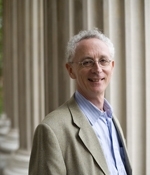
There are dualisms everywhere: mind or matter, literature or pornography, investment or speculation. Just today in the New York Times, David Brooks wondered whether our current economic crisis was due to greed or stupidity, and felt obliged to plump for stupidity.
All of these 'or's are choices between complex mental constructs that merely sound simple or primitive; every 'or' is an attempt to forcibly convert the duality into a unity. But the fact that that we can see (at least) two sides to each of these issues signifies intrinsic complexity. Physicists long ago learned to turnwave or particle into wave and particle and live with it, or at least stop thinking about it for as long as they could keep successfully calculating.
Heinz Pagels' 1998 book The Dreams of Reason tackled the science of complexity and the use of computers to understand complex systems that defy reduction. I met Heinz when I was a colleague in particle physics, the most reductionist of fields, in an office down the hall at The Rockefeller University in the late 1970s. An enthusiastic iconoclast with wide interests, Heinz devoted one chapter to the consequences he foresaw of putting science and computing in the service of banking, finance and trading. He presciently warned about the possibility of uncontrollably complex markets, and of the way in which finance, intended to finance investment and construction, may be tempted to incestuously turn in upon itself to recursively finance merely more financial activities.
— Emanuel Derman
EMANUEL DERMAN is a professor in Columbia University's Industrial Engineering and Operations Research Department, as well as a partner at Prisma Capital Partners. He is a former managing director and head of the Quantitative Strategies group at Goldman, Sachs & Co. He is the author of My Life As a Quant. He was recently featured in "They Tried to Outsmart Wall Street" [3.9.09], a front page New York Times "Science Times" profile by Dennis Overbye.
THE REALITY CLUB: Joseph Traub, Jaron Lanier, Lee Smolin

DREAMS OF REASON: THE RISE OF THE SCIENCES OF COMPLEXITY
Simon & Schuster, 1988
BY HEINZ R.PAGELS
PREFACE
Chapter 7: THE QUICK BUCK BECOMES QUICKER


